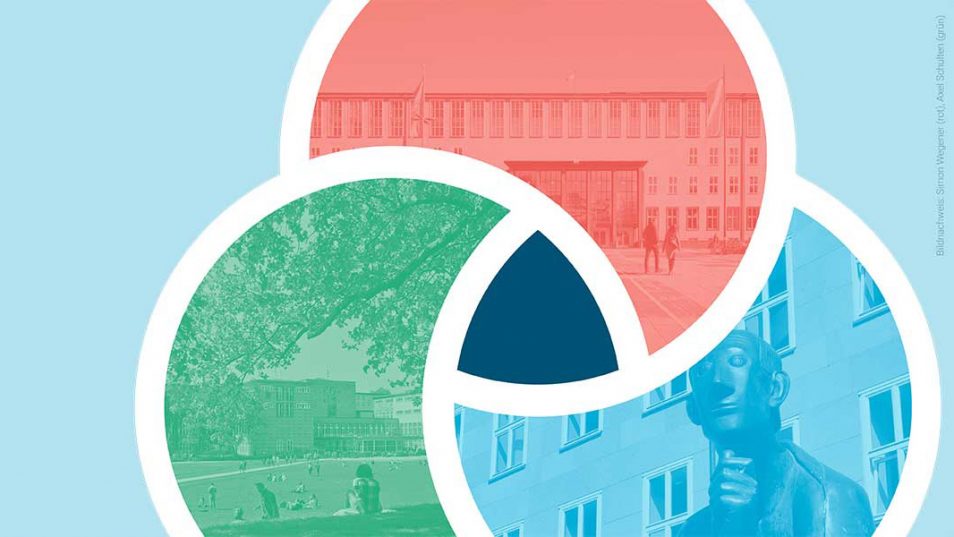University of Cologne Adopts Holistic Sustainability Strategy
 © UoC
© UoC
Sustainability will be a guiding principle of research, teaching and transfer / faculty, students and staff participate in its implementation and identify further opportunities for improvement on the way to a sustainable, climate-neutral campus.
After a thorough planning and development phase, the University of Cologne has adopted its sustainability strategy for the coming years. In doing so, it recognizes that sustainability in terms of environment and social matters is one of the greatest challenges of our time. Issues such as climate change, pollution or food insecurity threaten the welfare of societies around the world and intensify social disparities. In order to tackle these complex issues, the sustainability strategy of the University of Cologne does not focus solely on the reduction of greenhouse gas emissions, but includes all dimensions and topics of sustainability – ecology, economy and social issues – in accordance with the diversity of disciplines and Faculties at the university. The aim of this strategy is to contribute to creating meaningful framework conditions for an ecological transformation by taking a holistic view of the ecological, economic, legal and social consequences of social action.
“As the University of Cologne, we are consistently committed to holistic sustainability. In doing so, we include the entire university and our central performance dimensions of research, teaching and transfer as well as organization and operation on campus,” said Professor Dr Axel Freimuth, Rector of the University of Cologne.
The objectives and measures of this strategy include supporting research in the action fields of the United Nations Sustainable Development Goals (SDG). This is done, among other things, through the advancement of excellent researchers and research projects and the establishment of a centre with new, interdisciplinary research approaches on sustainability issues. Furthermore, additional curricular and extracurricular offers on SDG topics will be developed. This includes, for example, the establishment of new degree programmes comprising topics linked to sustainability. In addition, the aim is the transfer of knowledge to society through cooperation outside the scientific context. The sustainable design of campus operations, for example through a steady and significant reduction in the consumption of fossil fuels, is also becoming a focus in order to operate climate-neutrally.
To combine the sustainability strategy with the university’s vision, the Rectorate has created a governance structure for sustainability, which allows all the different groups within the university to participate. In addition to a central sustainability office, this includes the role of a Rectorate representative for sustainability, Professor Dr Günter Schwarz, as well as a Sustainability Council, which in turn is composed of faculty, students and staff. These institutions bring together and coordinate numerous initiatives and have jointly developed the sustainability strategy.
In the next step, the implementation is planned together with scientists and students, the Rectorate, Faculties, institutions and administrative offices and transformation paths are designed to achieve the defined goals. The university has already achieved initial successes towards a more sustainable, climate-neutral campus in the past, including establishing its carbon footprint, switching to green electricity and improving its energy balance.
More information on the University of Cologne website.
